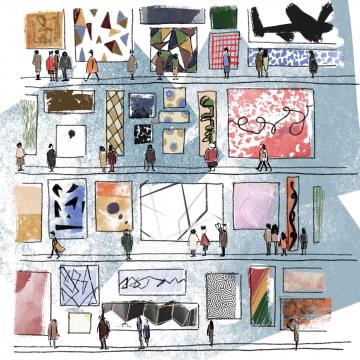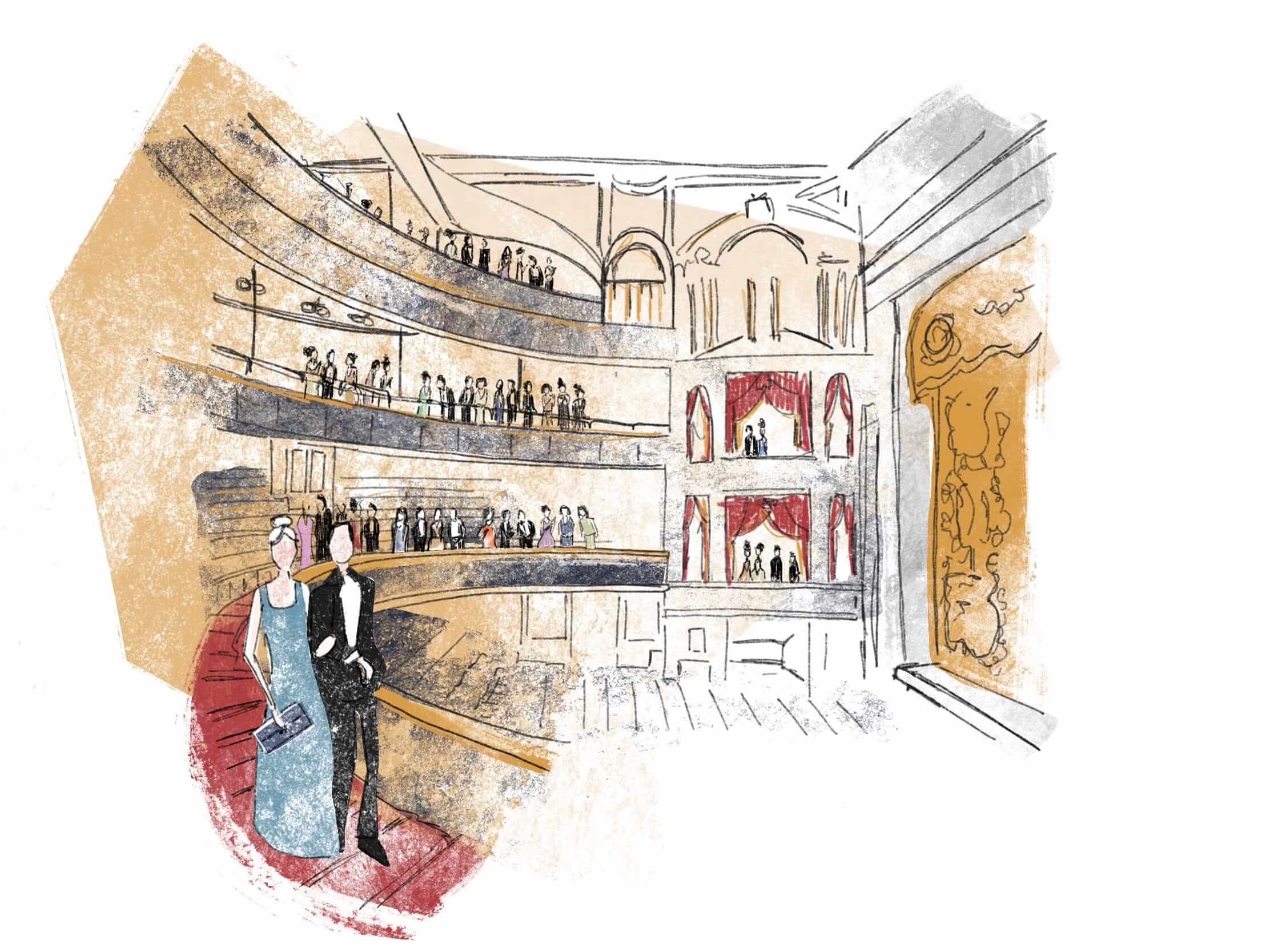
Prawo do kultury
In a world full of global challenges, culture is often at the bottom of the list of priorities. However, a country regarding culture as too expensive quickly finds out how much its lack can cost.
Since the lack of culture has numerous negative consequences, should we recognize it as a human right? Dr. Anita Budziszewska, a culture researcher from the University of Warsaw, analyzes this topic in her scientific activity. The main issue in this context, however, becomes defining and understanding culture itself. Many people will probably associate this concept with "high culture" and attribute such properties to it. For others, culture will mean something bigger, broader, but undefined. Nowadays, we are dealing with the phenomenon of the anthropologization of science; in the field of humanities, the boundaries of traditional disciplines are reformulated. Therefore, the perception of culture gains new aspects.
THE RIGHT TO PARTICIPATE IN CULTURAL LIFE
We have already stablished that here is no one correct definition of culture. Yet, it is worth considering what the "Right to Culture" may mean in practice - which also does not have a strict explanation. The relationship is simple: the broader we define culture, the more extensive meaning the "Right to Culture" has. It is worth distinguishing two types of understanding the right to culture: passive and active. The former concerns the right to access culture and art - an individual has the right to watch performances, paintings, films and other artworks (even the controversial ones). The right to culture is often defined as the right to participate in cultural life, originally understood as a passive right. The active side of this right refers to the right to create culture and artistic content. Artists have the right to create and express themselves in public life.The legal source of this discussion is article no. 27 of the Universal Declaration of Human Rights of 1948, referring to the right to participate in cultural life:
"Everyone has the right freely to participate in the cultural life of the community, to enjoy the arts and to share in scientific advancement and its benefits.".
PRACTICE
Often, big headlines in the press, on the Internet and social media thunder that we have a right to culture. Dr. Anita Budziszewska from the University of Warsaw says "There is no such thing as the right to culture. No international law document explicitly includes this right in its catalog. This right functions only in scientific and public discourse. We have the right to participate in cultural life. This is something we derive from this law or treat it interchangeably.".
It is worth noting that in the European Convention of the Council of Europe for the Protection of Human Rights and Fundamental Freedoms, which is the most important document in Europe defining human rights, there is not a single right directly related to culture. Similarly, in the Charter of Fundamental Rights of the European Union, Article no. 13 talks about the freedom of the arts, but not culture itself:
“Art and research are free from constraints. Academic freedom is respected".
In response to this lack, the "Right to Culture" project was created in Poland as a joint civic initiative of the National Center for Culture and the city of Wrocław - the European Capital of Culture 2016. It was a bottom-up initiative of creative and social circles, which was also their manifesto and demand for recognition of the right to i.a. freedom of artistic creation. The postulate was to include the right to culture in the European Convention (Additional Protocol). It is worth noting that this Polish project of the National Center for Culture and the city of Wrocław - European Capital of Culture 2016 stood out as it was a civic initiative, not a government project.
However, according to Dr. Anita Budziszewska, the sources and beginnings of a broader public debate on the right to culture in Poland can be traced back to the activities of 2009 during the the Congress of Polish Culture. Interestingly, there was a meeting of artistic and cultural circles. The Minister of Culture and National Heritage Bogdan Zdrojewski was a patron of the event. The date of the happening was not accidental; the 30th anniversary of overthrowing communism and the adoption of political changes in Poland. One of the main goals of the discussion was to summarize the achievements and diagnose the condition of the cultural sector. Many reports relating to particular areas of culture were established. One of the effects of these debates was the creation of a civic movement - Citizens of Culture - working for changes in the guidelines of managing and financing culture.
The movement's founders demanded a "full implementation of the rights and freedoms guaranteed by the Constitution of the Republic of Poland and the Universal Declaration of Human Rights, such as the right to universal and equal access to cultural goods and freedom of artistic creation" in their manifesto.
"Citizens of Culture" initiatives led to creating the "Pact for Culture" in 2012 . It is an agreement between the government and the movement's representatives. The pact was signed by: Donald Tusk (then representative of the government) and movement's members such as Dorota Olejnik, Agnieszka Holland, Michał Boni, Jerzy Hausner, Katarzyna Kozyra, Krzysztof Krauze, Paweł Łysak, Krzysztof Materna, Krzysztof Warlikowski, Agata Szczęśniak. The document refers to Art. no. 6 and 73 of the Constitution of the Republic of Poland and Art. 27 of the Universal Declaration of Human Rights, placing culture as the a general responsibility of authorities and citizens. The State should support culture, allocate funds and support artistic creation. Moreover, it included a declaration resulting from the earlier petition "1% for culture" regarding the allocation of public funds from the state budget to finance culture - i.e. 1% of GDP. In 2016, when Wrocław was the European Capital of Culture, an application was to be sent to the European Council to include the right to culture in the European Convention on Human Rights. It was to be the culmination of an action initiated by the National Center for Culture and the city of Wrocław. Ultimately, this idea was abandoned.

WHY IS IT SO HARD TO ESTABLISH THIS RIGHT?
The possibility of supporting and establishing the right to culture was discussed on countless meetings, symposia and consultations, even in the Sejm of the Republic of Poland. However, with each discussion, more and more concerns and unanswered questions appeared. What about high culture? Should we have the right to demand funding for theater or opera tickets? Is there room for controversial art for a part of society? Art often provokes questions regarding uncomfortable topics, requiring interaction with public morality. An international provision on the right to culture would oblige states to ensure access to culture for all citizens. Is there room for controversial art in this case? Or maybe only safe things are created more and "white gloves censorship" is imposed on art?
Each country practices cultural policy differently, as it is managed at the national level. It is almost impossible to structure the guidelines internationally. Same as it is impossible to create a single, coherent definition of the right to culture.
*The article was created on the basis of a conversation with Dr. Anita Budziszewska - PhD in social sciences at the University of Warsaw, as well as the Plenipotentiary of the Dean of the Faculty of Political Sciences and International Studies for international cooperation under the Erasmus+ program (EU).











